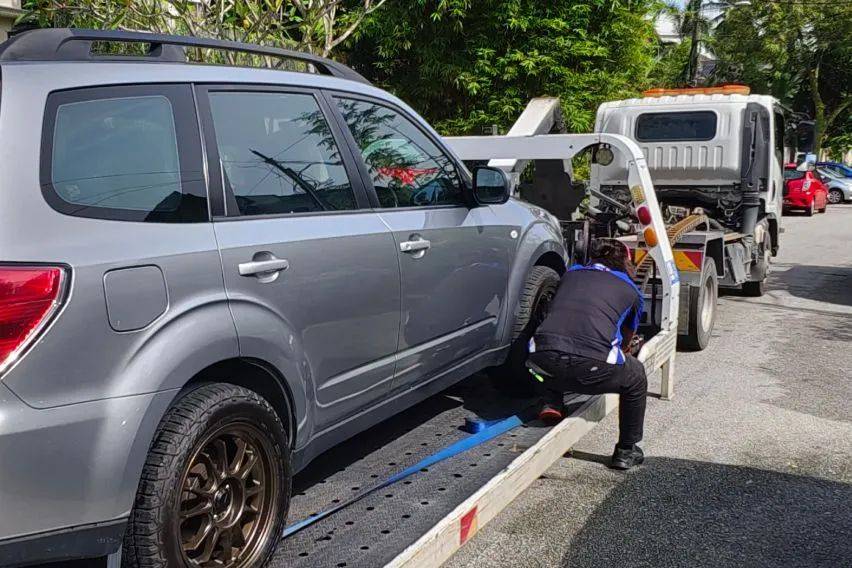Good news for vehicle buyers in Malaysia: Lemon Law on the horizon, as soon as March 2025

KUALA LUMPUR: There's some good news for vehicle buyers in Malaysia. As vehicles become increasingly complex, the risk of defects emerging shortly after they roll off the showroom or factory floor has grown.
KEY TAKEAWAYS
Why is the Malaysian government pushing fore Lemon Law?
This response comes in light of several incidents where brand new cars in Malaysia have broken down shortly after leaving the dealershipWhen will it be implemented?
March 2025How does Lemon law protect car buyers?
If your car is a lemon, you can get it repaired, replaced, or refunded under Lemon Law.In response, the Malaysian government is moving forward with plans to introduce some form of Lemon Law to safeguard consumers.
According to Bernama, the Ministry of Domestic Trade and Cost of Living (KPDN) is aiming to either introduce a new lemon law or amend existing legislation related to defective vehicles by March next year. This initiative aims to establish a more comprehensive consumer protection framework to meet current demands.
Minister Datuk Armizan Mohd Ali announced that a group of legal experts has been appointed to prepare a report on best practices from various countries and to engage with relevant stakeholders.
“They will start work from June until the end of September and submit a comprehensive report to the ministry,” reported Bernama after opening the Malaysian Consumer Symposium 2024.
Lemon Law offers solutions for buyers of vehicles and other consumer products, allowing them to seek compensation for goods that fail to meet expected quality and performance standards.
Armizan highlighted that Malaysia already has four laws with elements similar to Lemon Law: the Consumer Protection Act (Act 599), the Contracts Act 1950, the Sale of Goods Act 1950, and the Hire-Purchase Act 1967.
In the interim, KPDN will introduce two temporary consumer protection strategies. The first strategy is the formation of a task force to handle motor vehicle complaints, which will facilitate negotiations among the ministry, buyers, and distributors or manufacturers. The second strategy aims to enhance the Tribunal for Consumer Claims Malaysia (TTPM) process through collaboration with Bank Negara Malaysia (BNM).
This negotiation task force will address issues related to new private vehicles (cars or motorcycles) that are less than six months old, still under warranty, and unmodified. Consumers who have had unsuccessful initial claims with manufacturers can file their complaints through the ministry’s official channels.
Additionally, KPDN is working with BNM to streamline the process of obtaining consent letters from banking or financial institutions. These letters are required for consumers to file compensation claims at TTPM or in court. A common obstacle for consumers seeking compensation for defective new vehicles is the difficulty in obtaining these consent letters due to ownership rules under the Hire-Purchase Act 1967, which states that vehicles can only be transferred to the consumer after full payment is made.
Armizan expressed confidence that this strategy would enable consumers to resolve their claims more effectively at TTPM.
“…the government sincerely hopes industry players, especially the automotive industry, are willing to respond to the government’s aspirations” he added.
This initiative underscores the government's dedication to strengthening consumer protection and ensuring that vehicle buyers in Malaysia can make their purchases with increased confidence and peace of mind.
Industry experts, including Hezeri Samsuri from Careta, have applauded the government's efforts to introduce a Lemon Law to protect consumers. Hezeri further suggested that implementing a recall law should be the next step, as it would provide even greater safeguards for consumers.
Lemon Law and Recall Law serve distinct purposes in consumer protection. Lemon Law provides remedies for buyers of defective vehicles or consumer goods that repeatedly fail to meet quality and performance standards, allowing them to seek repairs, replacements, or refunds. It focuses on individual consumer rights and addressing chronic defects. In contrast, Recall Law mandates manufacturers to fix or replace defective products that pose safety risks to the public.
It is a regulatory action aimed at ensuring public safety by addressing widespread defects in products already on the market. While Lemon Law empowers consumers to resolve issues with their specific purchases, Recall Law addresses broader safety concerns affecting a large number of consumers.
Also Read: Malaysia to get Lemon Law this year? The feasibility is certainly gaining pace!
Sell your car at the best price
 Verified and genuine buyers
Verified and genuine buyers
- Latest
- Popular
You might also be interested in
- News
- Featured Stories
- Latest
- Upcoming
- Popular
Latest Car Videos on Zigwheels





















































